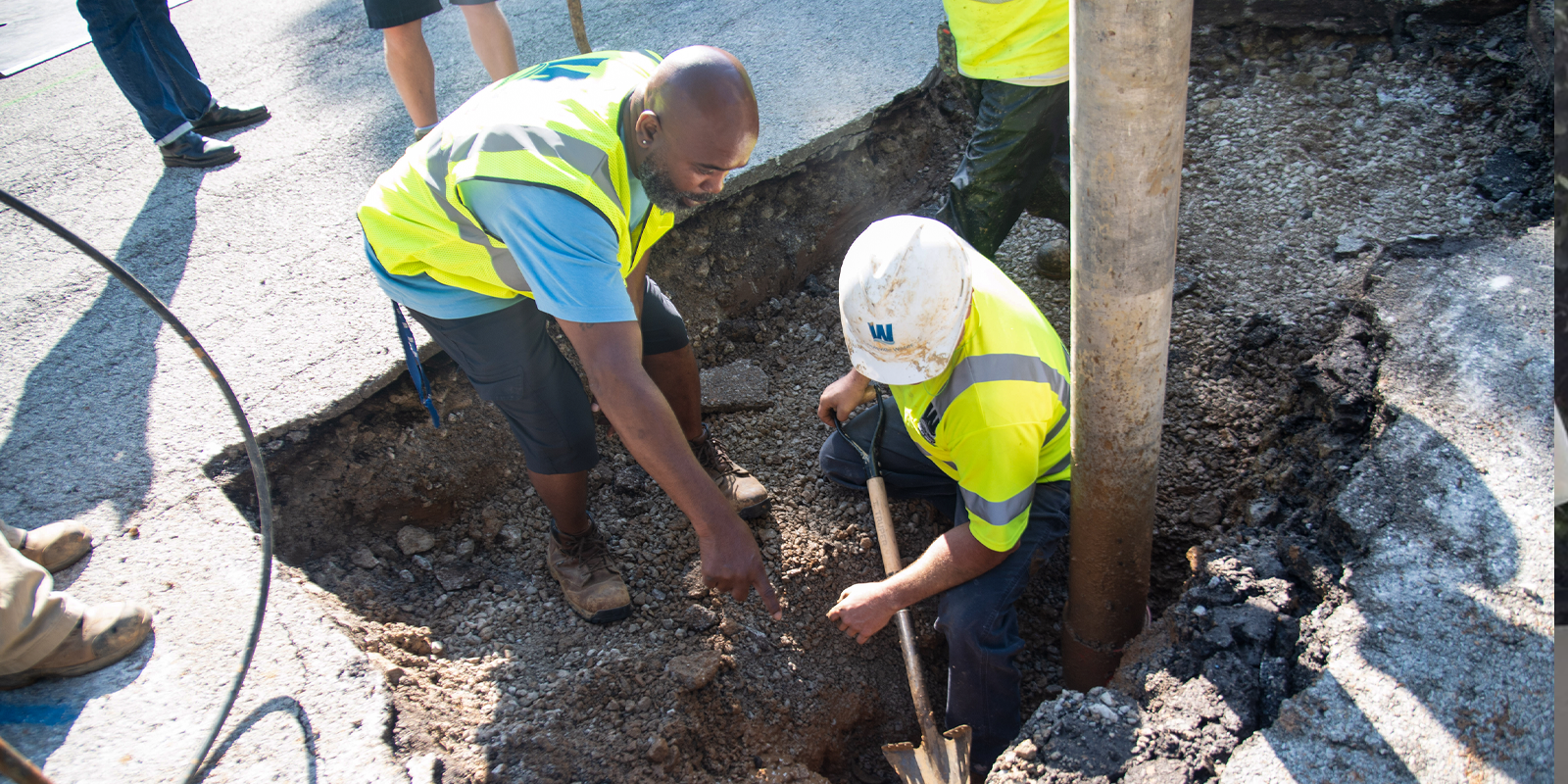On the day that AFSCME member Ronald Silver II died, the heat index reached 108 degrees in Baltimore. Extreme heat and humidity can make any person ill in a matter of moments. Now imagine you are a sanitation worker like Mr. Silver, climbing on and off a truck through a cloud of diesel exhaust. In the final moments of his life, he collapsed onto a local resident’s doorstep asking for water. His life mattered. His work was essential. And he should be alive today.
2024 was the hottest year on record since we started keeping track. While some of us escaped the heat indoors, many AFSCME members across the country were outdoors in their communities doing their essential work. Whether they are sanitation workers in Baltimore, highway workers in Pennsylvania or parks workers in Texas, extreme heat puts their lives at risk.
Studies show that extreme heat is linked to adverse health conditions, including cardiovascular and kidney failure and mental confusion, which can greatly increase the risk of workplace injury and death. But the solution is simple: what is needed to prevent heat-related illnesses is water, shade and rest.
In the past 25 years, heat-related deaths have more than doubled in the U.S. And yet the federal government has failed to develop an occupational heat standard. Anti-worker politicians and their business allies argue that providing rest breaks, free water, shade, reliable first aid and written safety plans place an undue burden on employers. Workers, legislators and activists continue to advocate for heat standard regulations because the consequences of inaction are injury and death.
We can learn a lot from California, which led the way in 2015 when it revised and strengthened its 2006 heat standard and is a groundbreaking case study on the impact of state heat standards.
Research examining Centers for Disease Control data compared the number of outdoor worker deaths in California to deaths in neighboring states without heat standards. The results are stunning: California’s heat standard was associated with a 43% reduction in deaths.
The study documenting the impact of the California heat standard was conducted by academic researchers Adam Dean and Jamie McCallum. Their results bolster the efforts of advocates to create heat standards in other states and to keep the pressure on for a federal heat standard.
This vital research was made possible through the Jerry Wurf Memorial Fund, administered by the Center for Labor and a Just Economy at Harvard Law School with guidance from AFSCME. The fund was established to reflect former AFSCME President Jerry Wurf’s ferocious commitment to public employees’ collective bargaining rights. His legacy lives on in the Wurf Fund’s mission to support academic research and writing to strengthen public sector unions.
The research makes it crystal clear: state legislation saves workers’ lives, and we must take urgent action to encourage more states to follow California’s lead. Across the country, union members, environmental activists, legislators and health care providers are beginning to mobilize to create or strengthen state and local workplace heat regulations.
Arizona formed a task force to propose a statewide heat standard. New Mexico’s Occupational Health and Safety Bureau is collecting data and input on a newly proposed heat rule. Legislation has been introduced in Colorado, Illinois, and New Jersey. Pro-worker heat standards are currently in effect in Maryland, Minnesota, Oregon and Washington.
While many states are stepping up, anti-worker legislators in Florida and Texas have put workers at risk by banning the creation of heat standards at the municipal level. In Dallas and Austin, Texas, that means existing workplace heat standards cannot be implemented.
In June, AFSCME shared the California heat standard research at the U.S. Department of Labor’s Occupational Safety and Health Administration (OSHA) public hearing on the Heat Injury and Illness Prevention in Outdoor and Indoor Work Settings rule. Despite the Trump administration’s antagonism to federal regulations and workers’ safety, there is hope. AFSCME’s testimony laid out the impact of heat standard regulations and reiterated demands to strengthen worker protections. It also added powerful worker stories to the public record to encourage the next pro-worker Department of Labor to institute a federal heat standard.
But this issue demands immediate action. Heat-related deaths are preventable, and we know how to prevent them. To honor Ronald Silver II, the AFSCME members we have lost, and the many other workers who have died needless deaths, we can and must take action. We can organize our communities, mobilize co-workers and educate elected officials to pass state and local workplace heat standards so that every worker returns home safely to their families.
